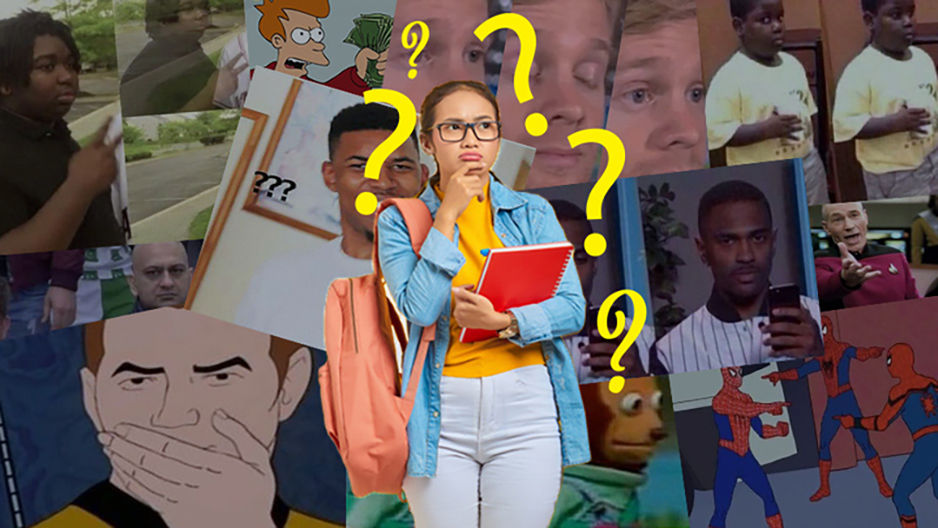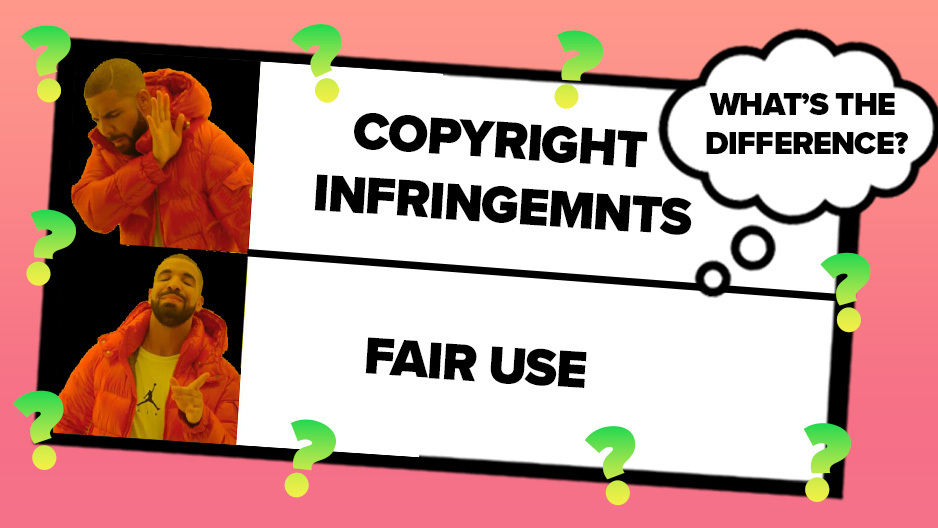What do you meme you can get sued for that social post?
Donald Harris, a Temple professor and expert on intellectual property law, explains everything you need to know about protecting yourself from lawsuits for sharing a meme.

Memes have become a beloved part of our internet culture—except for those times when you think you’re about to watch a hysterical YouTube video, only to get Rickrolled. (Sorry, I had to.)
Not only are memes massively popular (Instagram reported in 2020 that its users share more than one million memes daily), but they’ve also evolved into a booming business. Entire careers are being built around licensing opportunities for the internet’s most popular memes, and marketing specialists are putting a premium on memes in advertising campaigns. But where there’s money, especially quick money being made on the internet, trouble usually isn’t too far behind.
In the world of memes, that trouble is coming in the form of lawsuits. Meme creators have begun suing people for copyright infringement for using their memes without permission. Last November, a jury from Sioux City, Iowa, determined that a politician named Steve King broke the law when he used the Success Kid meme in a reelection fundraising campaign. Laney Griner, the mother of the child who became known as Success Kid and the person who snapped the iconic photo back in 2007, also filed another lawsuit against a fireworks company that used the image of her son to advertise one of its products. The fireworks company settled with Griner for an unspecified amount.
Just about everyone sends an unending volley of memes to each other, and posts them to their social media channels. So does that mean that everyone needs to be as worried as Scared Hamster about getting sued?
Key takeaways:
- It is unlikely that you would be sued for sharing a copyrighted meme on social media or creating a meme using someone else’s copyrighted content, since such behavior is usually protected by fair use guidelines.
- You could, however, be sued for using someone else’s meme if you are using it to try to make money.
- Fair use can apply if you make or share a meme that contains someone else’s work. However, to receive copyright protection, you must design a meme that is entirely your own, original work.
Can I be sued for using a meme?
For the most part, the answer is no, according to associate dean for academic affairs at the Beasley School of Law Donald P. Harris. Harris explained that sharing copyrighted work on the internet without permission from the copyright owner can be acceptable under fair use guidelines, depending on the use.
“Copyright laws and fair use guidelines exist, in part, to allow people to create and share their own new and original works,” Harris said. Some common or typical fair uses include criticism, comment, news reporting and teaching.
There are a few factors that determine whether you’re safe to engage with a popular meme, but Harris says the most important thing is to avoid competing with the meme creator’s ability to economically profit from their work. “The real concern here is that if we start allowing people to use other people’s copyrighted work to compete with the original work, then we’re going to drive down incentives for people to create in the first place,” he said.
In other words, you don’t have to worry about sifting through your Instagram to delete every meme you’ve posted in the last five years. Sharing a meme on the internet doesn’t usually interfere with the copyright holder’s ability to make money off their original work and that means you’re safe to keep posting away.
Even using copyrighted material to make and share your own new meme is generally acceptable under fair use guidelines. Though this only applies if you are using the copyrighted work in a new or different way and not trying to sell your work. Copyright law would call that transformative use, and Harris says that creating new memes from copyrighted work—even if you’re just changing the caption—is generally considered transformative.
“If you’re using copyrighted material in this new and different way, giving it new expression and new meaning, and you’re not competing in the same market with the original work, then it’s likely going to be considered fair use,” he said.

When does using a meme become copyright infringement?
You’ll start to run into trouble when you try to make money off of someone else’s copyrighted work, like the Iowa politician and fireworks company tried to do with Success Kid. Harris says that memes are increasingly being used in commercial settings, often in advertising to attract business. This is where people need to be more cautious. In this context, you might be competing in the same or a similar market as the original work.
For those not wanting to take a risk, Harris says there are a variety of websites containing public domain works that can be used commercially and do not require permission from their creators. A few popular examples are Unsplash, Pexels, pixabay and Wikimedia Commons.
Can my original meme receive copyright protection?
What if that sick new meme you just created from a photo you took of your cat is starting to go viral? Should you get it copyrighted to prevent your local politician from using it in their next campaign ad without your permission? No need to panic, Harris said because it is almost certainly the case that your meme already has copyright protection.
“Copyright protection arises automatically, but there are two major requirements for copyright protection: fixation and originality,” he said. Fixation simply means that your work exists somewhere where it can be seen by the public. Posting a meme to the internet, for example, satisfies the fixation requirement.
Similarly, Harris said that the originality requirement is also easy to meet, and nearly any “modicum of creativity” satisfies the requirement. Harris warns, however, that your meme has to be independently created, so you can’t copy it from someone else.
The fact that a meme must be independently created is an important distinction between fair use and copyright. You can receive fair use protection for making a meme from someone else’s copyrighted work, but you’ll only receive copyright protection on a meme if it is entirely your own, original work.
If your meme is fixed and original, then you don’t have to do anything else for it to receive copyright protection. However, Harris says that you will want to register your meme with the copyright office if you’re really worried that someone will infringe on your intellectual property rights. He even recommends providing notice of copyright on the work itself, which can be done by putting a watermark on the meme.
Wrapping it all up
The bottom line is that, thanks to fair use, you can create and share memes on the internet without fear of being sued. But be warned, you can find yourself slapped with a lawsuit for using someone else’s copyrighted meme if you’re using it to try and advertise something or raise money for a campaign.
Long story short, be careful before you use Keyboard Cat to advertise your new line of waterproof pet sweaters.